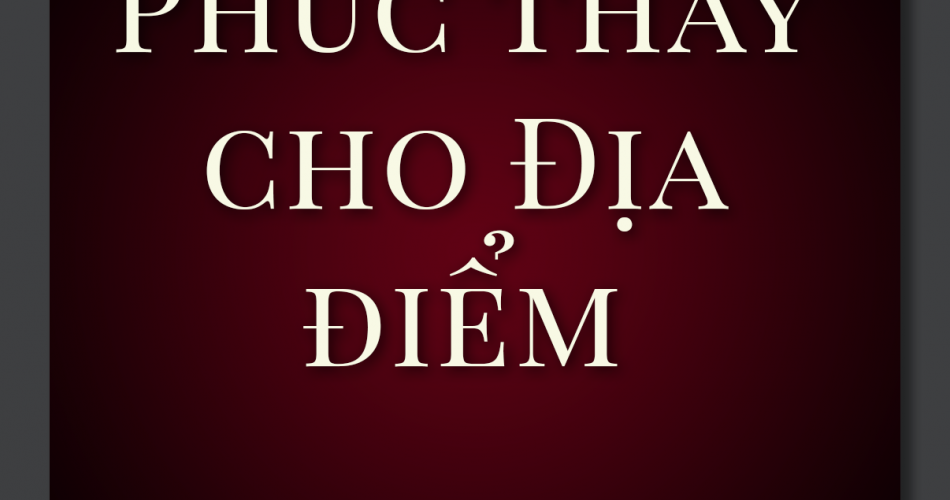Phúc thay cho địa điểm, cho căn nhà, cho nơi chốn, cho thành phố, cho tâm hồn, cho ngọn núi, cho chỗ trú ẩn, cho hang hốc, cho thung lũng, cho vùng đất, cho vùng biển, cho hải đảo và cho cánh đồng là nơi mà sự nhắc nhở tới Thượng Đế và sự tán tụng Ngài được nêu cao.
Bahá’u’lláh
طُوبَى لِمَحَلٍّ وَلِبَيْتٍ وَلِمَقَامٍ وَلِمَدِينَةٍ وَلِقَلْبٍ وَلِجَبَلٍ وَلِكَهْفٍ وَلِغَارٍ وَلِأَوْدِيَةٍ وَلِبَرٍّ وَلِبَحْرٍ وَلِجَزِيرَةٍ وَلِدَسْكِرَةٍ اِرْتَفَعَ فِيهَا ذِكْرُ اللهِ وَثَنَائُهُ
حضرت بهاءالله
« Blessed is the spot » is a passage from a Tablet of Baháʼuʼlláh to one of His nineteen Apostles, Mírzá ʻAlí-Muḥammad, known more commonly as Ibn-i-Aṣdaq. This iconic excerpt, first translated by Shoghi Effendi in The Advent of Divine Justice, serves as an important reminder to us that, wherever we may be, that spot will be blessed if we mention God and glorify His praise there.
In the original Arabic text, the “in” sound you hear at the end of every noun is a short vowel mark called a “kasratain.” In this context, this mark indicates that the noun is indefinite. So, rather than refer to a specific sea, land, island, and so on, Baháʼuʼlláh is saying that any sea, land, or island where the mention of God is made and His praise is glorified will be blessed.
Further Information
